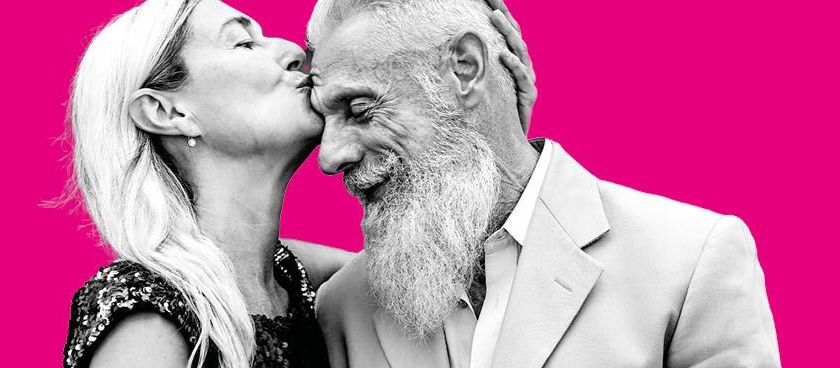What is the flu and the jab?
Getting your flu vaccination is a very important way to help protect your health during the winter – and if you're 65 or over you can get it for free.
What is the flu?
The flu is an illness that affects the respiratory system, including the nose, throat and lungs. It's caused by the influenza virus and it's very contagious.
It's in season from October through to March, and you can still catch it even if the weather's mild.
What are the symptoms of the flu?
Symptoms of the flu can include:
- a fever
- a dry cough
- sore throat
- headache
- muscle aches
- feeling sick and being sick
- diarrhoea
- feeling very tired.
How can I treat the flu?
As the flu is a virus, antibiotics won’t help with flu symptoms or recovery.
To help you get better you should drink plenty of water, rest as much as possible and try to keep warm. Taking ibuprofen and paracetamol can help ease some of the symptoms – but always remember to check if you're able to take certain medications.
How can I stop myself catching the flu?
Influenza is a very infectious virus. To reduce the risk of spreading it make sure you wash your hands often, use tissues whenever you cough or sneeze and throw away used tissues as quickly as possible.
There's a vaccine available for those who are at a higher risk of the flu.
Even if it's a mild winter, flu is in season, so it's important to have an annual free flu jab if you're eligible. This helps protect you and any person you care for.
Who can get the free flu jab?
You can get a free flu jab from your GP or pharmacist if any of the below apply:
- you're aged 65 or over
- you live in residential care or another long-stay care facility
- you receive Carer's Allowance
- you provide care for an older or disabled person
- you live in the same household as someone who is immunocompromised
- you're under 65 and have certain health conditions – a full list can be found on the NHS website.
- you're pregnant.
If you're a frontline worker in the NHS, the NHS will pay for your vaccination.
If you work in social care, your employer should organise and pay for your vaccine. If your employer doesn't offer the vaccine and you work for either a registered residential care or nursing home, a registered home care organisation or a hospice, you should be able to have a free vaccine at your GP surgery or pharmacy.
You should be able to get a free flu jab from your GP or pharmacist if you provide health or social care through Direct Payments (personal budgets) or Personal Health Budgets (such as Personal Assistants) or both. Speak to your GP or pharmacist if you think you could be eligible.
When should I have the flu jab?
For 2024, most surgeries and pharmacies will start to offer the jab from the from 3 October. This is a bit later than in previous years.
It takes up to 14 days for the vaccine to take effect, so it's better to have it as early as possible. Care home residents and those most at risk getting will typically be offered their jabs first.
However, the flu season lasts until the end of March, so it's well worth protecting yourself up until then.
Where can I get my flu jab?
You can have your flu jab at your GP surgery or a local pharmacy offering the service. It's up to you where you go.
Do I need to get my coronavirus booster and my flu jab?
If you've been invited to get your coronavirus booster jab, it's important to get it as well as your flu jab if you're eligible. Getting both is important as they protect you against different viruses and can help you avoid becoming seriously ill during winter.
All those eligible for an autumn booster dose should be offered one at least 3 months after their previous coronavirus vaccination.
While you may be contacted about your flu jab, you can also book it at any time and you may choose to book it at your local pharmacy.
You may be offered both the flu jab and the coronavirus booster vaccination at the same time. This is perfectly safe and can be more convenient for you.
If you have any questions about either vaccine you should speak to your GP or pharmacist.























